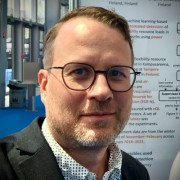The University of Eastern Finland’s commissioned research services and areas of expertise are now more easily found on the new and improved commissioned research services website.
The new and improved website for commissioned research services showcases and brings together services that are based on the university’s multidisciplinary expertise. In addition, the website features the service providers’ contact information as well as descriptions of the various steps included in the service path.
The renewed website addresses the wishes of the university’s partners. According to Arto Koistinen, Director of Research Infrastructure at UEF, the university’s commissioned research services and the specialists providing them can now be found more easily online. The description of the service path, in turn, seeks to facilitate the launch of collaboration and clarify the steps of commissioned research for the customer.
“The website showcases commissioned research services and areas of expertise that are used in applied research, and to meet the needs of various societal actors. The goal is to make it as easy as possible for our customers to get in touch with a person with whom they can discuss the available services and other possible forms of collaboration. The services and the entire service process have been designed together with the people in charge of our research infrastructures,” Koistinen notes.
Commissioned research refers to research, surveys or other services tailored to the customer’s needs. Commissioned research is always conducted per agreement and in an impartial manner, with the customer bearing the cost in full. The results are owned by the customer, and they are strictly confidential. Customers include companies from various industrial sectors as well as societal actors, such as cities and municipalities.
Striving for long-term partnerships
In addition to individual customer projects, the university is also interested in proposals for collaboration from companies, as well as in new initiatives aimed at long-term strategic partnerships. These can involve various forms of collaboration in research and education, including joint RDI projects and collaboration in doctoral dissertations and other final theses.
“For companies, collaboration with the university provides a foundation for new innovations, promotes sustainable and responsible business activities, and helps meet evolving competency needs,” Account Manager Harri Niska notes.
For the university’s staff and students, on the other hand, commissioned research services and partnerships also open up unique opportunities to forge contacts with business and industry, and to work on real-world problems.





